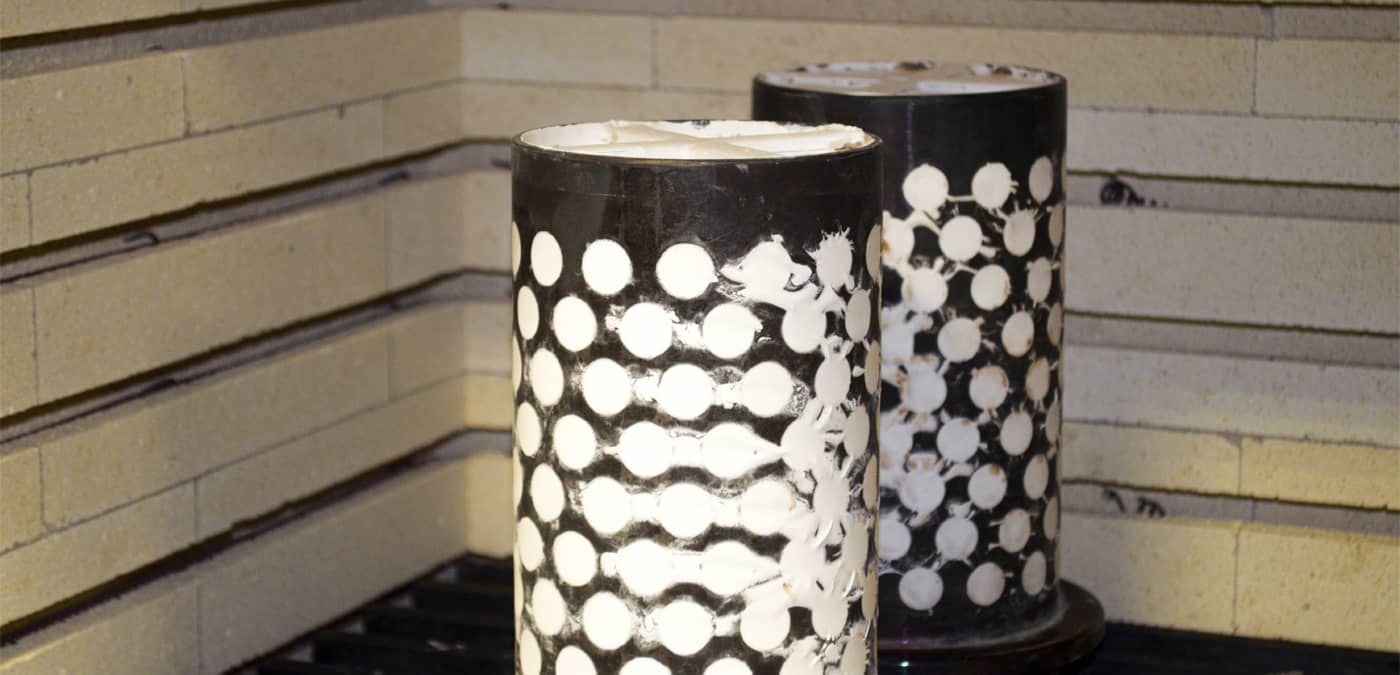Nickel white gold alloys are normally harder than yellow gold alloys. Excessive hardness in investment cast nickel white gold castings is directly related to the quench time of the investment cast flask. Long cooling times inside the investment exposes the white gold alloys to a prolonged time in the 800 to 500 degree F range. The rate of cooling inside the investment is very slow and the time in the 800 to 500 degree F range acts as a heat treatment, hardening the nickel white gold castings.
Shorter air cooling times for the investment cast nickel white gold alloys before quenching the flasks will result in softer castings. For large 4×8″flasks an 8 to 10 minute quench time is recommended for light to medium weight castings. Heavier casting weights can be quenched in 12 minutes. Smaller flasks of nickel white gold castings can be quenched in about 5 minutes. The shorter cooling times are long enough to prevent quench cracking while avoiding the hardening heat treatment effect of slow cooling inside the investment.
For gemstone set in wax casting with nickel white gold alloys there is not much that can be done to obtain softer white gold castings. The long cooling times in the investment required to prevent cracking of the gemstones will make the nickel white gold alloys very hard from the heat treatment effect.
There has been much confusion about quenching nickel white gold due to the fact that when ingots are cast for rolling, they are air cooled instead of being quenched. The same thing applies when annealing nickel white gold alloys that the metal should be air cooled and not quenched. The confusion is due to the rate of cooling. When nickel white gold alloys are cast in investment the rate of cooling is very slow due to the insulating effect of the investment. Outside of the investment the rate of cooling is much faster and no heat treatment effect takes place.
Other causes of excessive hardness can be over use of scrap in mixes used for precious metal casting. Nickel white gold alloys have 1/3 the reusability of yellow gold alloys. A 30% scrap and 70% fresh mix is recommended for remelts. The nickel white gold alloys can pick up carbon from the crucibles, sulfur from the investment and can oxidize easily making the metal hard, brittle and porous. If excessive defects are noticed in nickel white gold castings, the metal should be refined rather than reused.
